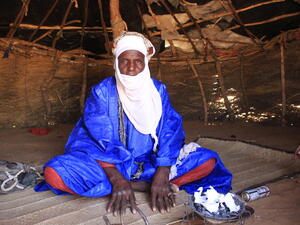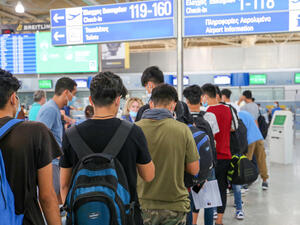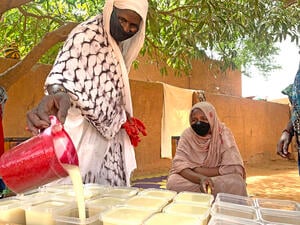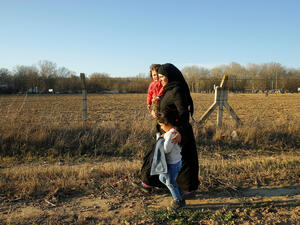2014 becomes the deadliest year at sea off Yemen
2014 becomes the deadliest year at sea off Yemen

Those who arrive in Yemen by sea are taken to reception centres, like this one at Bab-el-Mandeb, where they are registered.
GENEVA, October 17, (UNHCR) The UN refugee agency reported there has been a sharp increase this year in the number of migrants and asylum-seekers losing their lives in attempts to get to Yemen, mainly from the Horn of Africa, with more deaths at sea in 2014 than in the last three years combined.
One of the recent tragic incidents took place on 2 October when 64 migrants and three crew died when their vessel, sailing from Somalia, sank in the Gulf of Aden. Since, then five more deaths bring the yearly tally for 2014 to 215, exceeding the combined total for 2011, 2012 and 2013 of 179.
October's shipwreck was the largest single loss of life this year, and follows accidents in June, when 62 people died; March, when 44 people lost their lives; and in April, with 12 people dead.
"There have been frequent reports of mistreatment, abuse, rape and torture and the increasingly cruel measures being adopted by smuggling rings seem to account for the increase in deaths at sea," UNHCR spokesperson William Spindler told journalists in Geneva.
Boats crossing to Yemen are often perilously overcrowded, and smugglers have reportedly thrown passengers overboard to prevent capsizing or avoid detection. Search-and-rescue officials say the practice has resulted in hundreds of undocumented casualties in recent years.
The latest deaths come amidst a dramatic increase in the number of new arrivals to Yemen by boat in September. At 12,768, it marks the single biggest month for arrivals since current records began to be kept in 2002. Most of the migrants are Somalis, Ethiopians and Eritreans.
Factors behind the surge are believed to include ongoing drought in South-Central Somalia, as well as the combined effects of conflict, insecurity, and lack of livelihood opportunities in countries of origin. Moreover, "the surge can also be attributed to a decreasing level of cooperation between the countries in the region to better manage migratory movements," Spindler said.
When migrants and asylum-seekers arrive, often exhausted and dehydrated on Yemen's coast, UNHCR and its partners provide first aid and food at three coastal transit centres. Transport is then provided to the nearest reception centre for people to be registered.
The Somali arrivals receive prima facie refugee status from the Government of Yemen, while non-Somalis who express an interest in seeking asylum are given attestation letters to present at the UNHCR offices in Sana'a or Aden and begin the refugee status determination process.
UNHCR is providing technical advice to support the Government of Yemen to strengthen its capacity for search and rescue at sea, safe embarkation and proper identification of vulnerable people in need of protection by providing technical advice. But the agency believes more needs to be done to avoid such loss of life.
"We also call on countries of origin, transit and destination in the region to step up their cooperation in managing the flows of migration. At the same time they must pay due attention to the protection needs of refugees, asylum-seekers and other vulnerable groups such as women and minors,"| Spindler said.
This kind of regional cooperation was the central idea of the Sana'a Declaration adopted by Yemen and other governments at the Regional Conference on Asylum and Migration organized in November 2013.
Yemen is the only country in the Arabian Peninsula that is signatory to the 1951 refugee Convention and its 1967 Protocol. It currently hosts 246,000 refugees, including over 230,000 Somalis and smaller numbers of Ethiopians, Eritreans, Iraqis and Syrians.
In addition, there are more than 334,000 internally displaced Yemeni citizens who were either forced from their homes as a result of recent conflicts or living in longer-term displacement.








